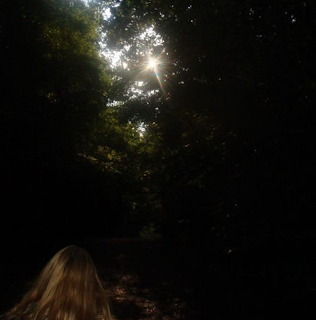[based on a text I written for The Wire Nov 12]
Polish Pavilion at
Venice Biennale
Katarzyna Krakowiak
At this years Biennale, full of clumsy pseudo-socially
engaged statements, it was mostly the few art focused installations, that
pushed the path of experiment. Perhaps it is impossible to make an exhibition as big as the Biennale something beyond polite mediocrity, to make people come back home happy. With the topic of ‘Common Ground’, the curator David Chipperfield tapped suitably into the contemporary economic crisis, bearing questions of ownership and communality within a capitalism-shaped world, but the outcome was rarely questioning anything beyond nostalgia after the western welfare state and modernism, beside the usual architects’ self-boosterism. Only one pavilion, by artist Katarzyna Krakowiak
and curated by Michal Libera of Bołt Records, considered the relation between
sound and architecture and took it to a new level, distinguishing itself
strongly from its surroundings by an extremely sophisticated, if a little depoliticized
installation, that can potentially change the direction of the sound art becoming increasingly conservative in terms of presentation – happening within white gallery walls, exploiting on and
on the same subjects, for instance, the one of "the city" or making predictable
installations, which think simply by using the sound they are sophisticated - not
really adding anything new to the understanding of the sound.
Krakowiak specialises in complex, often
inspired by classic texts on sound, borderline explorations, making us realise
how our world is visual, optical. In a series of events called Expectative she
mixed the F. Murray Schaeffer notion of soundscape with a 17th
century scientist’s Athanasius Kirchner. There, Krakowiak embraced ideas derived from the acoustic ecology
movement, with the artist looking at how sounds and echoes occur in the noise
of a modern city. In Venice she goes further, putting the
whole idea of a “pavilion” into question, as her work, entitled
elaborately Making the walls quake as if
they were dilating with the secret knowledge of great powers (after Dickens' novel Dombey & Son), relies solely
on the assimilation of sounds from the mechanical construction of the Polish
and the four neighboring pavilions: Romanian, Egyptian, Venetian and Serbia. All are a part of a heavy and sinister Fascist-era style structure on the
border of the Giardini side.
First, she stripped the previous additions
to the architectural construction of the interior to the brick walls, to get to
the rudiments’ (walls, floors, ventilation) genuine natural vibration – together with the acoustician Andrzej Kłosak, they discovered the building had a 6 second long reverberation. Then the building’s
acoustics were examined thoroughly. This way what is subsequently, via filters,
amplifiers and speakers, turned into a perceptible sound, is not just simply
the sound of the building, but it’s orchestrated – Krakowiak made the resonant frequencies of the space audible, orchestrating
them with a sequencing software. She decided which
elements generated more interesting sound and augmented them in the final
effect.
For instance, she installed sound absorbers behind the
building where normally nobody goes, or in the walls of the neighbouring
pavilions, which, in effect, are “eavesdropped”, so that we learn about the
secret existence of those spaces. The floor hides the speakers, which send powerful shivers to the building and walls, which were newly covered with a layer of
concrete to create more interesting echo. In turn, the speakers hung above the
entrance to “push” the unaware public inside and make them walk in search of
the sound. Suddenly, all the niches, vestibules, apses, bays of this
pseudo-classical fascist interior “sing”. And we walk around this fairly sinister space, whose asutere, grey areas make it strangely beautiful. But what we hear is not “music”, not
ambient, nor sound art: it’s the unreal, ethereal consequences of the
construction of this particular building made audible. The noises were brutal,
heavy, even disturbing. Stripped of all architectural elements, they embodied the
final point of pivotal situations from the 20th century experimental art: an echo
chamber of John Cage or Alvin Lucier's claustrophobic Shelter for amplified vibration pickups and enclosed space. Or in fact, they try to define a space for
performing sound as such. Music is usually played in an interior, which is
often ignored.
























